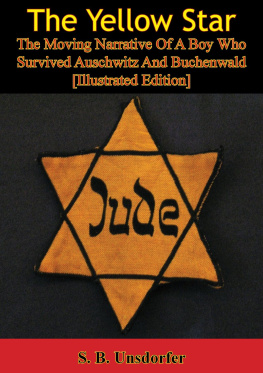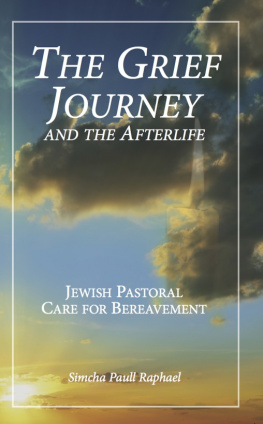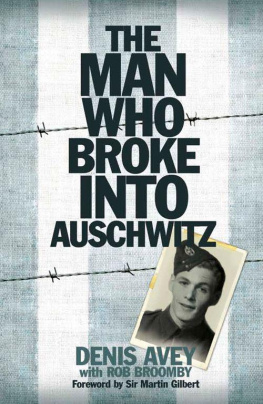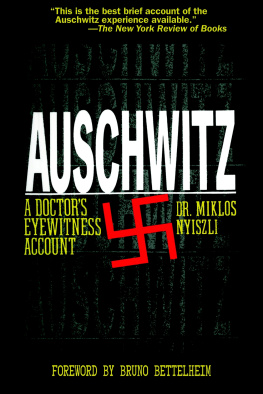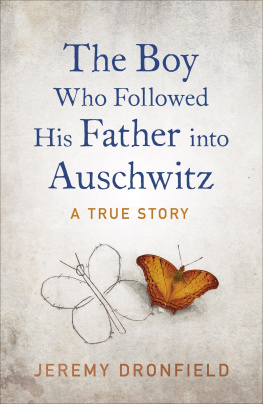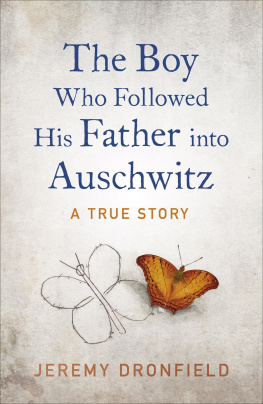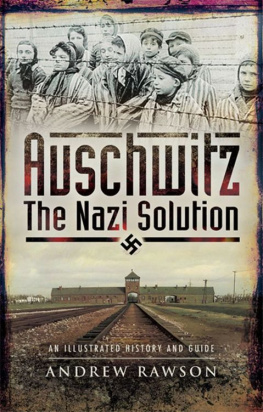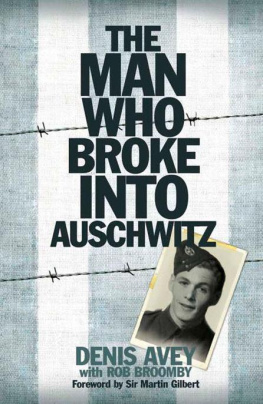

This edition is published by PICKLE PARTNERS PUBLISHINGwww.picklepartnerspublishing.com
To join our mailing list for new titles or for issues with our books picklepublishing@gmail.com
Or on Facebook
Text originally published in 1961 under the same title.
Pickle Partners Publishing 2015, all rights reserved. No part of this publication may be reproduced, stored in a retrieval system or transmitted by any means, electrical, mechanical or otherwise without the written permission of the copyright holder.
Publishers Note
Although in most cases we have retained the Authors original spelling and grammar to authentically reproduce the work of the Author and the original intent of such material, some additional notes and clarifications have been added for the modern readers benefit.
We have also made every effort to include all maps and illustrations of the original edition the limitations of formatting do not allow of including larger maps, we will upload as many of these maps as possible.
Cover Image courtesy of Wikipedia
THE YELLOW STAR
By
S. B. Unsdorfer
TABLE OF CONTENTS
Contents
DEDICATION
For these I weep. Mine eye, mine eye runneth down with water, for comfort is far from me. (Lamentations 1:17)
To the memory of my parents, grandparents, my sister, her husband and five young children, my uncles, aunts, and cousins, who, with six million of their brothers and sisters, were massacred by the Nazis.
INTRODUCTION
WHO KNEW when the Second World War really started? Did it start on September 3, 1939? Did it begin with Hitlers rise to power, or did it start on the last day of World War I? Nobody could tell, least of all a boy of fourteen, whose only care in the world was to make progress in school, and to beat his pals in sports and games.
But when one Saturday afternoon in the late summer of 1939, I was attending our weekly Youth Club and we were suddenly surrounded by a mob of wild drunkards who beat us and kicked us out of our club rooms with a chorus of Out with the Jews! I knew that a war was on. No gun had yet been fired anywhere, no rifle raisedbut I knew I was a Jew and had been beaten for it.
The place where this happened has many names: Bratislava, it is called by the Slovakian section of the population; Pressburg, insisted the German-speaking citizens; Pozsony, lamented the Hungarians, the few faithful Magyars in the city, who were still dreaming of the old days of the Monarchy.
But I had a simpler name for it: I called it affectionatelyHOME...the place where my mother and my five brothers and sisters were born, the town in which every cornerstone and every tramcar, every shop and every fruit-stall was ours.
To Jews the world over, Bratislava was a familiar name. It represented a city which for generations had been headed by renowned rabbinical scholars whose Talmudic works have the force of law in matters of Jewish ritual, and whose names are revered throughout the world. It was known as a Jewish mother community which established schools and social institutions, homes for the aged, and hospitals for the sick which were the envy of many a larger and richer town.
My father was an integral part of this wonderful community. An ambitious, energetic, and learned rabbi, he grew in name and fame, and when World War II was launched by Hitler, he was one of the most beloved figures in the town. Much as his many admirers, young and old, clung to him, he clung to them even more closely. How else could he have let his American affidavit expire without using it? Position, house, and a great future were awaiting him in the United States of America; fares for the whole family were assured. All that he needed to do to save himself and his dear ones was to sit down and write a few words and cable them to the congregation in New York, pick up the visa at the American Embassy, and safety was his, and his familys.
But my father never wrote that cable and the words which might have saved his life, and my mothers. It would be wrong, he said, at this critical moment to desert his synagogue, his youth movement, and his friends. He saw to it, however, that my two older brothers, then aged nineteen and twenty, would get to England so that their studies might not be interrupted, but for himself and the rest of us he was an optimist, an unshakable believer in the triumph of human rights and justice. He believed that we were all in Gods hands, and that a Germany so recently defeated could not put up much opposition to a democratic world of united nations, bound by numerous pacts and defence agreements.
But then the real war started. Czechoslovakia was divided. Hitler occupied Prague, and Slovakia became an independent state with Bratislava its capital city. Poland was defeated, Holland and Belgium occupied, France beaten, but Father remained optimistic.
Even the reports of mass-murder and annihilation which reached us from Poland did not shatter his faith. Then came strict anti-Jewish measures at home: Jewish shops were aryanised; the Yellow Star, six inches square, had to be worn; universities, cafes, hotels and holiday resorts were declared out of bounds for the Jews; one compartment in each train was reserved for Jews Only, etc., etc. But Father remained firm. In his conversation, and particularly in his addresses from the pulpit, he described the calamities as an act of God, summoning us to return to Him and His Commandments.
By early 1942, the threat of deportation became really serious. Terror and fear descended upon us like a blanket of fog. But Father remained hopeful. The Slovakian government is headed by Tiso, a Catholic priest, he would argue. He could never allow deportation! No religious man would ever be party to it! The Vatican wouldnt permit it.
But by April, 1942, these hopes were shattered. The mass murder of Slovakian Jewry began at the rate of three thousand per week. First, transports of young girls only, followed by boys from sixteen onwards. They were sent to Auschwitz. And I?
With a letter from a local doctor, I journeyed to Nitra, about loo kilometers away, and spent three weeks in a hospital with the help of my two brothers-in-law. By May, deportations of entire families had begun, and I rejoined my parents at home to share my fate with them.
Only Jews most essential for the economy of the stateirreplaceable people were given a white document exempting them from deportation. Father, being the spiritual head of the Burial Society, was thus granted exemption. But it followed that as thousands upon thousands of our townsmen were led to their deaths, the local Burial Society had little to do. Auschwitz became Jewrys cemetery, and the cattle wagons, their cortge. Father was still an optimist, but his faith was now tempered by events. I awoke one morning, in the very early hours, to find him throwing crumbs of bread to a few lonely pigeons on the windowsill. He was murmuring something. I sharpened my ears to catch his words. Oh, merciful God! he pleaded. As I feed these innocent little birdsmay You provide food and shelter to our starved and stricken brethren out there in the camps. Give them wings, like the birds, so that they may escape, and find refuge and rest.
Yes, his sermons were now directed to the One above, while his sympathy was with those below.
Months dragged by, months during which you saw your friends and neighbors, your grocer and teacher, your doctor and lawyer dragged away mercilessly to their deaths. In no time, Bratislava became an orphan community with only a few thousand escapees and essential Jews existing either in damp and smelly cellars, or in small and overcrowded rooms in the Ghetto streets.
Next page
